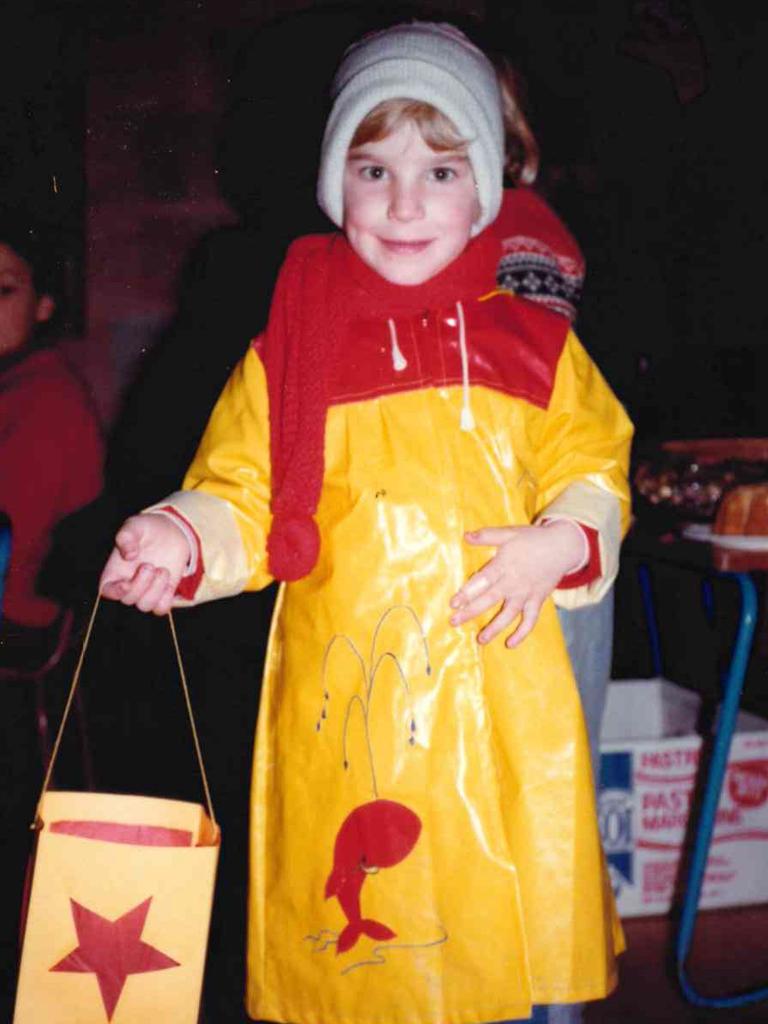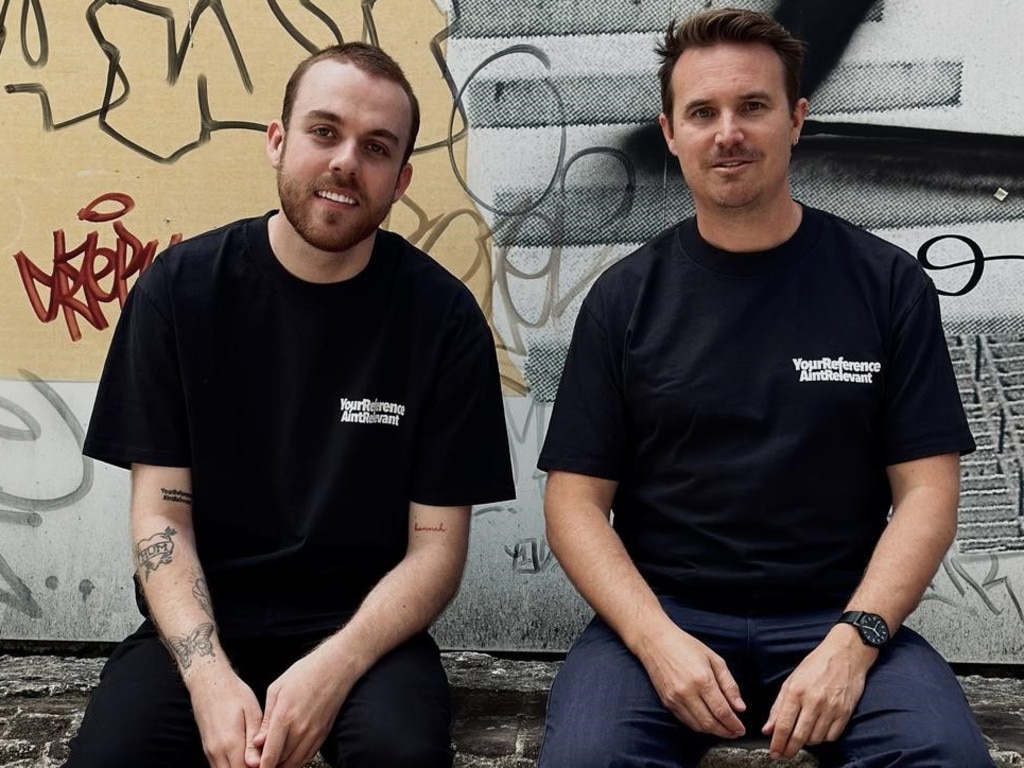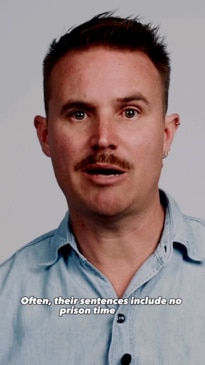Child abuse survivor’s parents wrote character reference for her perpetrator
As Alyssa James sat in court to see her attacker sentenced for sexually abusing her as a child, her parents made a shocking decision.

A few days after watching her two young sons gleefully tear open Christmas presents, enjoying the kind of childhood she could’ve only dreamt of, a reflective Alyssa James made a life-changing decision.
On December 28, 2019, she sent a text message to the male relative who had sexually abused her from the age of six, warning him that she would no longer keep his sick secret after 34 years.
Two months later, the man was arrested and charged with several offences after making some admissions to his crimes during a police interview.
Eventually, less than two years after Alyssa fired off that fateful SMS, her perpetrator was found guilty of three counts of indecent sexual assault.
Any relief she might’ve felt was short-lived.

For the sentencing, before Magistrate Alison Adair, Alyssa provided a powerful but shattering victim impact statement, in which she spoke of asking herself the torturous question “Why me?” countless times throughout her life.
She relived the extreme psychological toll that arose from that betrayal.
She detailed the severe consequences that the abuse – as well as having to see the perpetrator since the abuse – had on virtually every facet of her life.
“I felt like I finally had a voice,” Alyssa told news.com.au of that moment. “I had taken back a little bit of power.”
But just moments later came a sickening realisation about a part of the legal process she didn’t know existed.


“Those convicted of child sexual abuse are able to call on people to provide character references, which are taken into account when they’re sentenced. I had no idea that was a thing,” she said.
“It sounds ridiculous just saying it aloud now, to be honest. How can this be allowed? Who cares if a pedophile or child abuser is a nice guy?”
Among the several glowing and adoring character references tendered to the court were two that still haunt Alyssa.
The ones penned by her mother and father.
‘Valued member of the community’
Alyssa is now the face of a campaign in South Australia to remove the legal ability for child sex offenders to use character references to sway judges during sentencing.
Your Reference Ain’t Relevant, a national campaign by child abuse survivors and advocates Harrison James and Jarad Grice, has already made big strides in New South Wales and the ACT.
The pair, with Alyssa’s help, are turning their sights on SA to ensure other abusers can’t rely on the flowery words of family and friends to skirt serving jail time, like her perpetrator did.

In sentencing the man, Magistrate Adair referenced - as legally required to do - the several positive accounts about how loved he was by his family and his apparent value to the broader community.
The court also took into account the belief that he was remorseful and even his strong work ethic. He was sentenced to nine months’ imprisonment, with a 30 per cent discount for pleading guilty.
The remainder was wholly suspended and no conviction was recorded. A two-year good behaviour bond was imposed, but otherwise he walked free from court on December 23, 2021.
“It was completely devastating,” Alyssa said.
“I cannot stress enough how horrific it was. The impact of hearing people excuse what he did to me, to diminish it was speaking about his good character, was a hugely traumatic experience.
“That’s why I am so passionate about the Your Reference Ain’t Relevant campaign and changing the legislation. I don’t want another human being to go through that – to feel s deserted and invalidated by our legal system.”
Decades of shame
Character references are little more than someone’s personal opinion about another person, rather than an objective fact, Alyssa believes.
In stark contrast, the sexual abuse of a child is undeniably a heinous crime – one that often carries a life sentence for its victim-survivors.
“I felt the shame of what he did to me at six for more than 30 years,” she said.
“It impacted every relationship I’ve ever had, be it romantic or otherwise. I walked on eggshells with my relatives for most of my life. I would ask myself why he singled me out. Why me? What had I done as a six-year-old that made him choose me?”

Alyssa also lived with the weight of knowing that should she come forward, it would “probably implode my family”.
For a long time, she doubted she ever would say anything.
But becoming a mum and feeling innately and fiercely protective of her sons planted the seed, and then a close friend’s disclosure of being abused as a girl added to it.
“Eventually, I started seeing a really fantastic psychologist. Part of that was realising how much I wanted to hold this person accountable for what he did to me,” she said.

Alyssa told her parents about the abuse. They were initially supportive of her going to police, she recalled.
Then, after sending the text message to her abuser, to which he simply responded “I’m sorry”, she learnt that he reached out to her family.
“He was scrambling to protect himself. He hadn’t owned up to anything. He was manipulating them,” she said.

Alyssa now has no contact with her parents.
Her two sons sometimes talk about the grandparents they don’t see and with the help of her psychologist, Alyssa has been able to explain in part why “it’s just us now”.
Enough is enough
Alyssa is sharing her harrowing story publicly for the very first time because the use of character references by convicted child abusers shouldn’t be a function of the justice system.
“I’m so grateful for Harri and Jarad’s work in putting this issue on the agenda,” she said.
“Having been through this, having lived it, I wouldn’t wish that kind of horrific re-traumatising experience on anyone.
“When someone commits the most heinous crime against an innocent child, it shouldn’t matter what Bob form the down the road thinks about his character.
“It shouldn’t detract from the harm caused to that child. It shouldn’t impact the sentence they’ve given after being convicted of such unspeakable crimes.”
Speaking to news.com.au recently, Mr James said he and Mr Grice are seeking amendments to section 11(4) of the Sentencing Act 2017, so convicted perpetrators of child sexual abuse can no longer “exploit the legal loopholes” that allow them to rely on good character references.
“By advocating for consistent legislative reforms, we aim to close the gaps that currently allow certain child sex offenders to exploit (these) legal loopholes,” Mr James said.
“This expansion ensures that all survivors, regardless of their location, receive the justice and security they deserve.”






